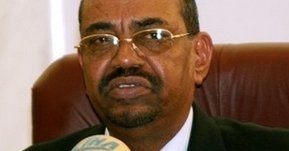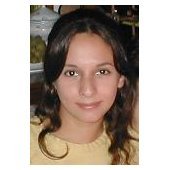The Prosecutor has additionally requested the indictment of al-Bashir for war crimes and crimes against humanity. The Pre-Trial Chamber of the ICC will now examine the request of the Prosecutor Louis Moreno-Ocampo: if the judges confirm it, the President of Sudan will occupy the gloomy primacy of first acting Head of State to be indicted with an allegation of genocide.
The G-word and its formidable power of stigmatisation
The initiative of the Prosecutor may be considered the final step in a very long dispute between academics on the alleged ‘genocidal nature’ of the conflict in the western region of Sudan. In the past five years the international community has been debating whether the horrible crimes committed in Darfur could be labelled as an attempt at genocide, or instead as war crimes of crimes against humanity. It is clear that the invocation of the so-called ‘G-word’ goes much further than a purely legal reasoning about the nature of the offences. The crime of genocide may presently be considered the most powerful instrument of international stigmatisation, extraordinarily capable of attracting international attention and recalling political responsibilities. The regrettable consequence is that other conflicts, labelled as ‘simple’ cases of war crimes and crimes against humanity – such as the bloody war in the region of Ituri, in the Democratic Republic of the Congo – are not granted an analogous treatment. Finally, in many cases the definitions of genocide, war crimes and crimes against humanity are used inappropriately in the everyday lexicon and by the media, generating confusion and blurring the distinction between different typologies of international offences.
If the judges confirm it, the President of Sudan will occupy the gloomy primacy of first acting Head of State to be indicted with an allegation of genocide.
Genocide, it may be useful to underline, is not synonymous with massive violations of human rights. The element defining the crime, according to the 1948 Convention and to the Statute of the International Criminal Court, is the intent to destroy in whole or in part a national, ethnic, racial or religious group as such. In the specific case of Darfur, if the Pre-Trial chamber will confirm the indictment, the challenge for the Office of the Prosecutor will be to demonstrate the complicity of the Sudanese President al-Bashir in killing members of the Fur, Masalit and Zaghawa communities, for causing serious bodily or mental harm to members of those groups, and for deliberately inflicting on the groups conditions of life calculated to bring about their physical destruction.
Ethnic conflict without ethnic groups?
A very interesting element, which has been briefly mentioned in the request filled by the Prosecutor and is very likely to emerge during the trial, is the manipulative nature of the ‘ethnic’ labels in the region. The first step to understand the conflict in Darfur is actually to clear the table from ‘ancient hatreds’ explanations, and from superficial accounts that simplify the crisis as an ‘Arab-versus-African ethnic war’. Quite surprisingly, there is still widespread confusion about the actors of the conflict: Darfurians are not Christian-animists, as are the inhabitants of Southern Sudan, but instead predominantly Muslim, while the ‘racial’ or ‘ethnic’ distinction is not recognised as an objective feature of traditional Darfurian society.
Far from originating from age-old ethnic animosities, the conflict in Darfur is believed to derive from circumstances of serious environmental degradation, connected to increasing phenomena of droughts and desertification registered in the region in the past 30 years. Increasing disputes over water and land have progressively raised the tension between pastoralist and agriculturalist populations: finally, this explosive cocktail was melted with a racist ideology of ‘Arab’ superiority, imported by Libya and supported by the central Government in Khartoum.
The populations of the Fur, Zaghawa and Masalit are believed to be collectively targeted for destruction by the Government of Sudan. Their guilt would be to share the same ‘ethnicity’ of the rebel groups that, since 2003, challenge the Government in Khartoum by conducting an armed campaign of insurgency in the region. As emphasised by the Prosecutor of the ICC, however, al-Bashir himself may be held responsible for promoting a polarization of the Darfurian population between ‘Arab’ and ‘African’ groups. The ‘ethnic’ labels, more than representing the origin of violence, offered the ideological justification for a brutal campaign directed against a defenceless civilian population, following a strategy of counter-insurgency.
The limits of international criminal justice
One of the biggest achievements of international criminal justice is precisely to reveal the responsibilities and machinations of powerful ruling groups for the eruption of the so-called ‘ethnic violence’, as well as their role in constructing, inspiring and fuelling ‘ethnic’ animosities on the ground. By indicting President al-Bashir, the ICC would make an historical step in the prosecution of the ‘big fishes’ responsible for the eruption of intra-State conflicts: a path already initiated with the trials of Slobodan Milosevic before the International Criminal Tribunal for the former Yugoslavia and of Charles Taylor before the International Court for Sierra Leone. The purpose is to internationally isolate the powerful accused, by making their political and diplomatic activities concretely impossible outside the boarders of their countries.
It would be foolish to believe that an indictment will put the word ‘end’ to the ongoing conflict in Darfur.
It would be foolish, however, to believe that an indictment will put the word ‘end’ to the ongoing conflict in Darfur. In the domain of international justice, law and politics are inevitably interconnected, and the International Criminal Court suffers of limitations quite similar to the ones of United Nations within the contemporary system of international relations. The ICC, as a matter of fact, does not have a concrete power of enforcing its decisions, but instead is obliged to rely on the cooperation of the UN and national States for the surrender of suspects. The main instrument in the hands of the ICC is the international isolation of the country, but the risk of a retaliation of the Sudanese Government is extremely high. Humanitarian organizations and the United Nations, in particular, may be denied access to the refugee camps in Sudan, putting the survival of the internally displaced population even more in danger. Needless to say, the State of Sudan is quite unlikely to cooperate with the Court by handing in its own President.
International criminal justice cannot substitute political efforts in the pacification of conflict areas, or undertake the responsibility of enforcing human rights by directly protecting civilian populations. The request of indictment of al-Bashir is a great news for the punishment of the offenders in the region, and hopefully for granting redress to the survivors. But without a political solution of the crisis, the risk is that justice will arrive too late.
Prosecutor’s Application for Warrant of Arrest under Article 58 Against Omar Hassan Ahmad AL BASHIR , at http://www.icc-cpi.int/library/orga...
Prosecutor’s Statement on the Prosecutor’s Application for a warrant of Arrest under Article 58 Against Omar Hassan Ahmad AL BASHIR, at http://www.icc-cpi.int/press/pressr...
Human Rights Watch, International Criminal Court’s Action Against al-Bashir, Question and Answer, at http://hrw.org/english/docs/2008/01...
On the conflict in Darfur:
Daly, M. W., Darfur’s Sorrow. A History of Destruction and Genocide. New York: Cambridge University Press, 2007.
De Waal, Alex (ed.), War in Darfur and the Search for Peace. Harvard [etc.]: Global Equity Initiative, Harvard University, 2007.


Follow the comments: |
|
